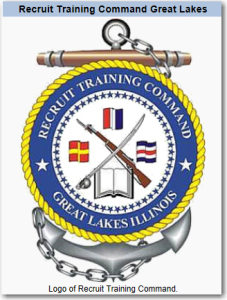Sunday Sample – ‘The Sailor,’ a novel about an aircraft carrier
“Somewhere behind the haze-gray façade of bulkheads there are people, people too important to be likened to small cogs in a massive non-human machine. Each man has a distinguishable face and personality, a specific job to perform and memories of a world an ocean away.” —Malcolm R. Campbell, Cruisebook, USS Ranger, 1969–70
USS Ranger Public Affairs Office on the 03 level. I am second from the right.
Even though the USS Ranger (CVA-61) has been designated by the U.S. Navy as off the donation list and on the list of ships to be scrapped, people are still trying to save the ship. It’s a shame to see the navy selling aircraft carriers to scrappers for a penny when, if the right backers, public officials and local groups got together, the ships could be converted into museums with a great deal of benefit to local economies. I keep reading the online news stories about the ship, but so far no high-power group has come forward to save the ship.
My contemporary fantasy The Sailor is not about the USS Ranger. You can tell that by the fact the publisher put a photo of the USS Enterprise on the cover. That’s fair, I guess, since Hollywood used the USS Ranger in movies as a stand-in for the Enterprise.
My your of 1968-1970 tour of duty in the Gulf of Tonkin on board the Ranger did, however, inspire many of the events I used in The Sailor. Names have been changed, of course, and then, too, real life on board the ship wasn’t a fantasy trip! The novel isn’t a war novel or a derring-do novel; it’s a story about a pacifist from Montana who ended up on board the ship in the AIMD department where he looked after aircraft. He was in little danger there compared to the carrier sailors of World War II. Most of his troubles came from friends and family back home. When it came down to it, a bar girl in a sailor town saved his life.
The Sample from the “Boot Camp” Chapter
 During his “Service Week,” he worked as a yeoman at the Brigade HQ typing up forms. One hot summer night he met a troll-sized man whose name he subsequently forgot after he typed it into multiple boxes on multiple sheets of paper.
During his “Service Week,” he worked as a yeoman at the Brigade HQ typing up forms. One hot summer night he met a troll-sized man whose name he subsequently forgot after he typed it into multiple boxes on multiple sheets of paper.
“I’m going to put you in my book,” the troll shouted, threatening each man in turn as he was processed from desk to desk.
Nobody worried about his upcoming exposé. Marks, the first class, and Headley, the CPO, both said, “Well, fine,” and then shrugged and rolled their eyes behind his back.
“You type my name on those forms and I’ll put you in my book, too,” he shouted as he stood in front of David’s desk.
“Make sure you spell it right,” said David, sounding more like his father than he wanted to. The troll sat down after that.
The CPO told David to ride shotgun in the van when they took the man over to Mickey Mouse. Except for the guards at the doors, the barracks looked pretty much like his own recruit company’s barracks, with a center aisle running down between double-stacked racks. But the sounds were different, as though wounded coyotes and unknown swamp creatures were confined there, and while escorting the man from one end of the long room to the other in the dim light, everyone or everything awoke and spoke in private tongues
and watched. There was an exchange of paperwork and then, as he left, the last thing David heard was, “I’m going to put all you assholes in my book.” David considered staying to hear more.
“A real nut case,” Marks said as they got back in the van.
“I guess.”
“A doctor once told me guys like that are born with their heads stuck up their asses and it affects them for the rest of their lives,” said Marks. David couldn’t help but laugh. “Most of them end up in the army unless they have a shoeshining fetish, and then they end up in the marines.”
“Is that information going to be on the next test?”
“Always take a good set of notes. What the hell is that?”
“What?”
“That bird sitting on the brigade sign,” said Marks.
“It’s a raven.”
“As in, ‘Quoth the raven nevermore’?”
“This one looks meaner than Poe’s raven,” said David, “but one thing’s for sure.”
“What’s that?” asked Marks.
“If it flies over to Mickey Mouse, it will end up in that guy’s book.”
“You got that right.”
The raven took a shit on the sign and flew off toward the lake when they walked up the sidewalk.
“You’ve got an emergency phone call from home,” the chief told him. “Take it at my desk and keep it short.”
He had been expecting it. “What is it, Grandmother.”
“Pretend like I’m telling you that Jayee was thrown from a horse and had to be rushed to the hospital.”
“Gramps was thrown from a horse? Is he going to be okay?”
“Madness isn’t the answer. You’re running from something, three women, many things, but don’t go there. You must follow Eagle on this matter.”
Marks and the chief were standing close.
“They took him all the way down to Missoula? What kind of surgery?”
“I don’t want you coming home singing M-I-C-K-E-Y M-O-U-S-E like those Mouseketeers, you understand me?”
“Yes, Grandmother. But I thought he could roll a cigarette with one hand. Did his elastrator get stuck or has he gone senile?”
“Stop it,” she snapped. “I’m already on my third stick of Beemans; don’t fash my stomach with your sass. Look around: is that lanky first class petty officer with the smudge on his sleeve writing all this down?”
“No. Do want me to ask the chief if I can come back home until he’s off the critical list?”
“You’re on the critical list,” she said, and turned away from the phone shouting, “Áisopumstàu, wáiá’é!”
As she said it, the doors blew open and every paper in the office ended up in the air like windblown leaves on a brisk autumn afternoon.
“Remember your first duty. You didn’t survive Nináistuko to end up crying like a wounded coyote in a mental hospital.”
“I know, I know, and I won’t. Thanks for the tip.”
“Goodbye, Káyiopok, my little bear cub, and as they say, ‘fair winds and following seas.”
“Goodbye, Grandmother.”
“Help us clean this crap up,” the chief said. His face was harder than gray granite and twice as coarse. Somebody was going to be working late that night organizing the damn paperwork back into file folders and in-baskets. Marks sat in a chair with a cup of coffee as though he needed a rest.
“Your granddaddy fell off his horse?”
“He was rolling a damn cigarette and that cantankerous little Morgan dumped him across a fence.”
The chief decided he also needed a cup of coffee, which was just as well since his right hand was more or less frozen into the position needed to hold a fair sized mug or a small penis. Marks brought that news bulletin to David’s attention the previous evening while the chief was in the head reading a Playboy magazine. “Probably caught in limbo between relieving his sexual tensions and relieving his thirst,” Marks had speculated.
“So your family lives on some kind of farm?”
“Ranch.”
“I didn’t know they had those anymore,” the chief said.
The conversation went on for longer than it was worth. When David walked back to the barracks at 2 A.M., he kept a sharp lookout for ravens. Katoya had a point: madness was not an optimal refuge from the tension between head and heart. Needless to say, it was a bad choice, was it not? But of the real conflict, he could not accept the cold logic of “the establishment” any more than he could accept the unlicensed passion of the anti-war protesters. Four years ago, most of his classmates were ensnared by the film Zorba the Greek and lives devoted to nothing but the dance.
He understood the temptation of it; and so did Anne, she of the everlasting moonlight that had pulled him into the twist of matched bodies while promises dripped from her sweet mouth. It was easy for Grandmother to say, in so many words, that he should pull himself up by his bootstraps and square away his life. But how? He did not yet know how to “say farewell to all things at every moment” as Kazantzakis prescribed. Logic and intuition pulled at him from opposite sides of the universe and—other than madness—freedom lived only in the act of killing either the logical Eagle or the intuitive Black Horse, his holy mentors.
That brought him to this boot camp moment dead center between his barracks and the Mickey Mouse barracks. A kind light had been left on for him at both doors, and rather than standing there for eternity like an existential ass between two tempting bales of hay, he flipped a coin to see whose number was up and walked inside.
-
I hope you enjoy the story.







